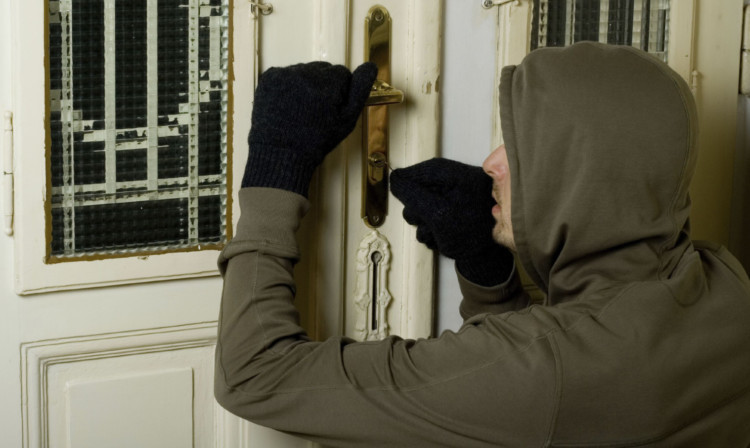In this special report, The Courier hears from a former housebreaker who explains why he did it and what you can do to avoid becoming a victim.
Paul is a reformed housebreaker from Glenrothes who has spent serious time behind bars.
Prolific in the town throughout the 1980s, he stole thousands of pounds worth of goods after developing a drink problem.
After initially stealing from sheds, he graduated to houses in neighbourhoods across Glenrothes.
He would look for an opportunity an open window, a house without a light on or trying door handles to see if they were locked or not.
Once inside, he says he was a fast worker who knew exactly what he was after.
“I would go upstairs for jewellery, cash as well,” he said. “If there’s none of that I’d probably take the telly or DVD player.
“You’re only in there for maybe five minutes at most but sometimes a lot of people make a mess, grab open drawers.”
Once out, the stolen goods quickly became part of a supply chain, with Paul often having a buyer lined up to take “hot” items off his hands.
“I never used to take the goods to my house,” he said. “If it was dry I would keep them in woods and then go and find somebody who was interested.
“There’s normally a buyer that I know who would buy electrical goods so it was no problem. Jewellery goes away quick as well.”
Confessing he was scared of being confronted by a homeowner and often needed a second person alongside him, Paul said: “You’re not so scared if there are two of you. If you’re on your own you’re a wee bit paranoid and if any trouble happens you can run to the door.
“That’s the first thing you would do. I wouldn’t try to fight anyone unless they grabbed us. We realised we shouldn’t be there in the first place and didn’t want to get done for assault.”
Now reformed, Paul is using his knowledge to warn Courier readers of the tricks of the trade housebreakers look for.
“A lot of people keep handbags and wallets in kitchens and if they see that then a thief will keep an eye on that house,” he said. “They could maybe target that house the next day.
“You’ve also got to watch out when it’s windy. You can make a bit of noise and they think it’s just the wind outside.”
Asked how prevalent housebreaking was these days, he said: “Housebreaking is still going on but not so much. It’s more sheds.”
Paul’s conscience clearly caught up with him and, aware of the impact his crimes were having on his victims, he quit in the 1990s.
“I’ve spent over 17 years in sentences for housebreaking but I don’t do that now because I realise the effect it has on people’s lives.
“Some don’t want to go back to their houses and I wouldn’t want that to happen to my mum.”
TOP TIPS TO AVOID BEING A VICTIM
Weather: Stormy conditions give housebreakers an opportunity to make more noise. Be vigilant and check when you hear noises outside.
Alarms: A house alarm outside can deter thieves from targeting a property, even though many people do not activate them.
Windows and doors: Thieves are bold and see an open window as an opportunity. Doors should also be locked as some will try handles.
Valuables: Placing expensive items or wallets and handbags near windows is an invitation to potential thieves. Car keys should also be kept well away from entrances as these can easily be snatched.
Lighting: A well-lit property is less likely to be targeted by thieves. Housebreakers like to do their work with as much privacy as possible and many security lights come with motion sensors that activate when a person is detected.
Marking: Security mark expensive possessions with a UV marker pen. If they are stolen this can provide a means of identification.
